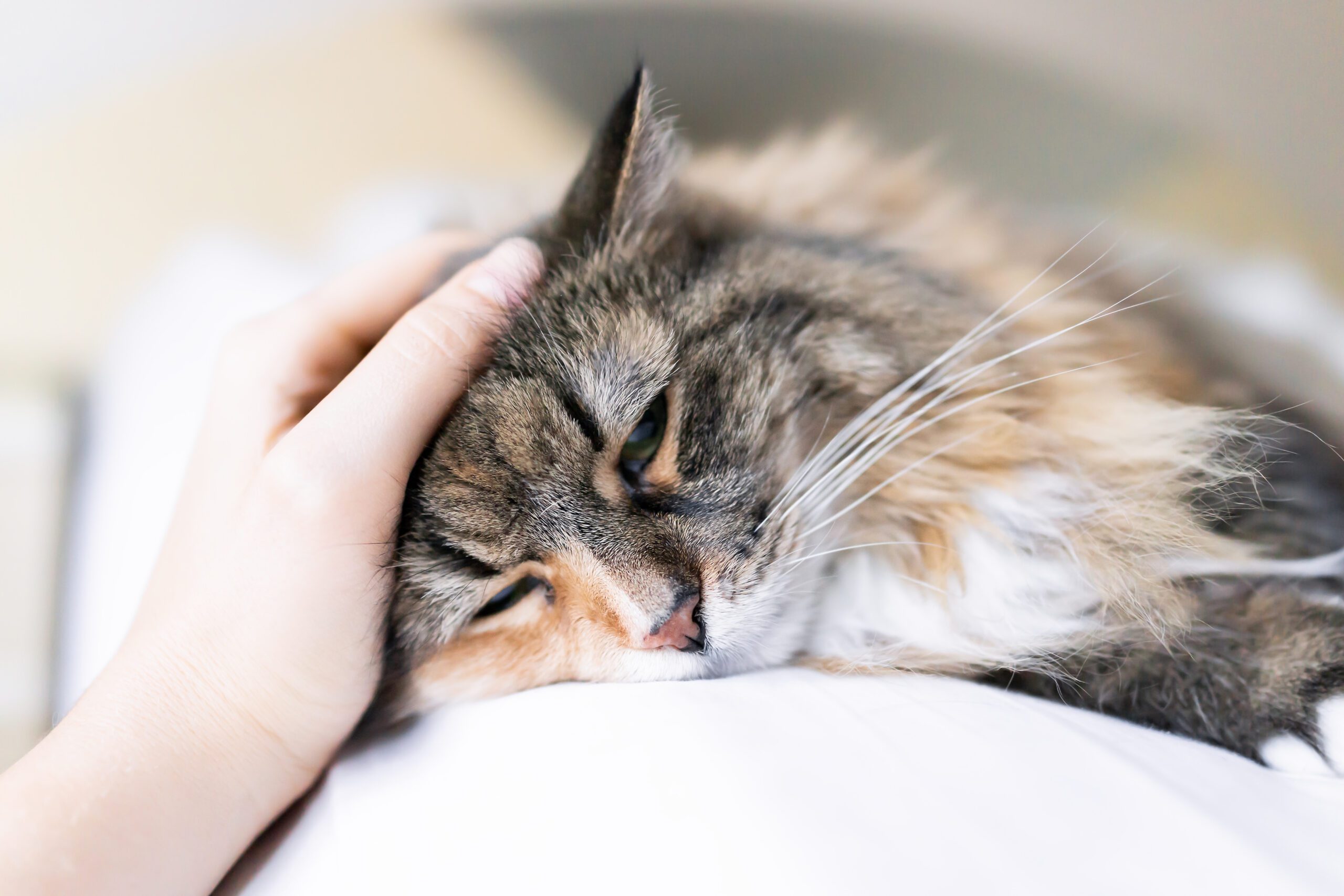What is appropriate behaviour for my cat?
What is appropriate behaviour?
Appropriate behaviour allows cats to express natural instincts and eliminates boredom and frustration.
Play behaviour in cats is a valuable activity and serves many purposes. It allows your pet to express natural predatory behaviours, provides mental stimulation, exercise and practice social skills. Good play promotes bonding with owners, can calm frustrated cats and increase confidence and independence. Play for cats and kittens should be varied, engaging and allow foraging and hunting behaviours. It should be an enjoyable experience for you and your cat.
Why is it important?
Cats are natural hunters and have a high prey drive. Although domesticated, they still exhibit behaviours linked to this natural drive. Cats can become frustrated without an appropriate outlet and this can lead to inappropriate and undesirable behaviour.
Kittens and play
Kittens start to play at an early age. During play time kittens learn how to pounce, to hunt, and need this to provide outlets for their natural behaviours. Play helps to improve motor and cognitive skills, such as eye-paw coordination. They can also help to teach them predatory and social skills, such as bite inhibition and appropriate interactions with humans. These social skills learned during play will build the foundation for their behaviour for the rest of their lives. It is important that they learn appropriate behaviour from the start.
Remember that kittens need to play to learn skills. Predatory play using toys that promote expression of normal behaviours such as jumping and clawing, and even fighting and kicking.
Caution
Never use your hands to play with kittens. They may have tiny teeth and claws that may not hurt when they are small but will as they grow! Using your hands and feet to play teaches your kitten it is the right thing to do. They may continue this as an adult thinking scratching and biting people is appropriate. If your kitten grasps your hands or feet pulling away will encourage the kitten to bite or hold on even more, triggering a predator-prey response. So if this happens, stop what you are doing and calmly end the play.
Never punish your cat or kitten. They do not understand this action, and it may lead to defensive aggression if your cat or kitten becomes scared. It can also lead to stress related issues, such as inappropriate urination (around the home and not in a litter tray) or cause them to avoid from you.
Children
Children should be taught to treat cats and kittens with respect. This needs to happen from the first time they meet. Remind your children to be quiet and gentle so as not to scare off your cat or kitten. The relationship may take a while to build, but it will keep them safe during playtime. Children and cats make great playmates. Children should always be supervised by an adult who can ‘call time out’ if the older cat or kitten is becoming tired or frustrated. Fishing rod toys are ideal for keeping small hands away from sharp teeth.
Encouraging appropriate play
Some cats prefer to play alone, and some like to play with their owner. Vary the toys and games and remember that play will improve your cat’s fitness and enrich their lives.
Tips to promote appropriate and safe play for everyone:
- Have frequent play times with your cat, use safe suitable toys
- Fishing toys (furry toys on a stick) increase physical and mental stimulation and will also keep your hands away from kitten claws and teeth. Wand toys are interactive. They can be dragged along the floor or waved in the air encouraging leaping and chasing and are fun for the pet and their human.
- Ball toys and scrunched paper encourage chase and catch play, and encourage solo play
- Toys such as teddy’s or ‘kickeroo’ encourage wrestling and ‘bunny-kicking’- normal predator actions. They are often scented with catnip to make them more desirable.
- Cats and kittens love to hide and climb- ensure a variety of (safe) levels for your cat to explore
- Electronic chase toys- these mimic the ‘prey’ without involving any hands.
- Laser toys- are fun and easy to use, however always make sure to follow up with a ‘reward’ (a treat) afterwards. If not, the lack of a ‘successful hunt’ may cause frustration and cause unwanted behaviours. Keep play sessions short to avoid overexcitement and prolonged pressure on growing joints.
- Puzzle and foraging toys- cats like to forage. These can be particularly useful for mealtimes and are easy to make. For example- placing kibble in empty egg boxes for cats to take out or building a pyramid from empty tubes and placing their kibble within.
- Avoid leaving your cat or kitten alone with string or anything that can be swallowed, as this can result in a vet visit!
How do we promote appropriate behaviours?
It is important to praise and encourage positive or desirable behaviours, such as with treats during and at end of play, affection, and further play.
If inappropriate or undesirable behaviour is shown, distract your pet and redirect them. Redirection to something more appropriate is best. Physical punishment should never be used. Cats do not understand this, and it can make behaviour issues worse.
When do we need to be worried?
If cats are unable to display natural behaviours, they may become destructive, aggressive, or stressed. Stress and anxiety are major contributing factors to many health problems in cats. To keep out cats happy and healthy we need to ensure their behavioural needs are met.
If your cat is stresses you may see changes in their behaviour. These may be behaviours such as hiding away, refusing to come indoors, changes in toileting behaviour (such as passing urine indoors and not in a litter tray).
Always remember that aggressive behaviour can be pain related too. Consider contacting your vet for advice if you suspect a change in your pets’ behaviour may be pain related.
If your cat is exhibiting any worrying behaviours, we recommend you contact your vet to rule out any health issues. If the problem is behavioural in origin, your vet may be able to suggest advice for minor behavioural issues or advice further assistance.
Where can we get help with this?
If you require help, you can discuss your cat’s behaviour with one of our experienced Veterinary team members. More urgent or severe issues may require specialist assistance from a qualified behaviourist. Your Vet may suggest speaking to a behaviourist registered with the Association of Pet Behaviour Counsellors (APBC).
APBC members are qualified, assessed and regulated. They have advanced qualifications and have met the standards set out by the Animal Behaviour and Training Council (ATBC). These promote animal welfare through training and behaviour change.
Cats are natural hunters and have a high prey drive. Although domesticated they still exhibit instinctive behaviours linked to this natural drive. If cats are unable to display natural behaviours, they may become destructive, aggressive or stressed. Anxiety is a major contributing factor to health problems in cats. To keep out cats happy and healthy we need to ensure their behavioural needs are met.
It is important to praise and encourage positive or desirable behaviours. If inappropriate behaviour is shown distract your pet Then redirect them to something more appropriate. Physical punishment must never be used. Cats do not understand this, and it can make behaviour issues worse.
If you require help, you can discuss your cats behaviour with one of our experienced Veterinary team, or your own Veterinary team. More urgent or severe issues may require specialist assistance form a qualified behaviourist.





